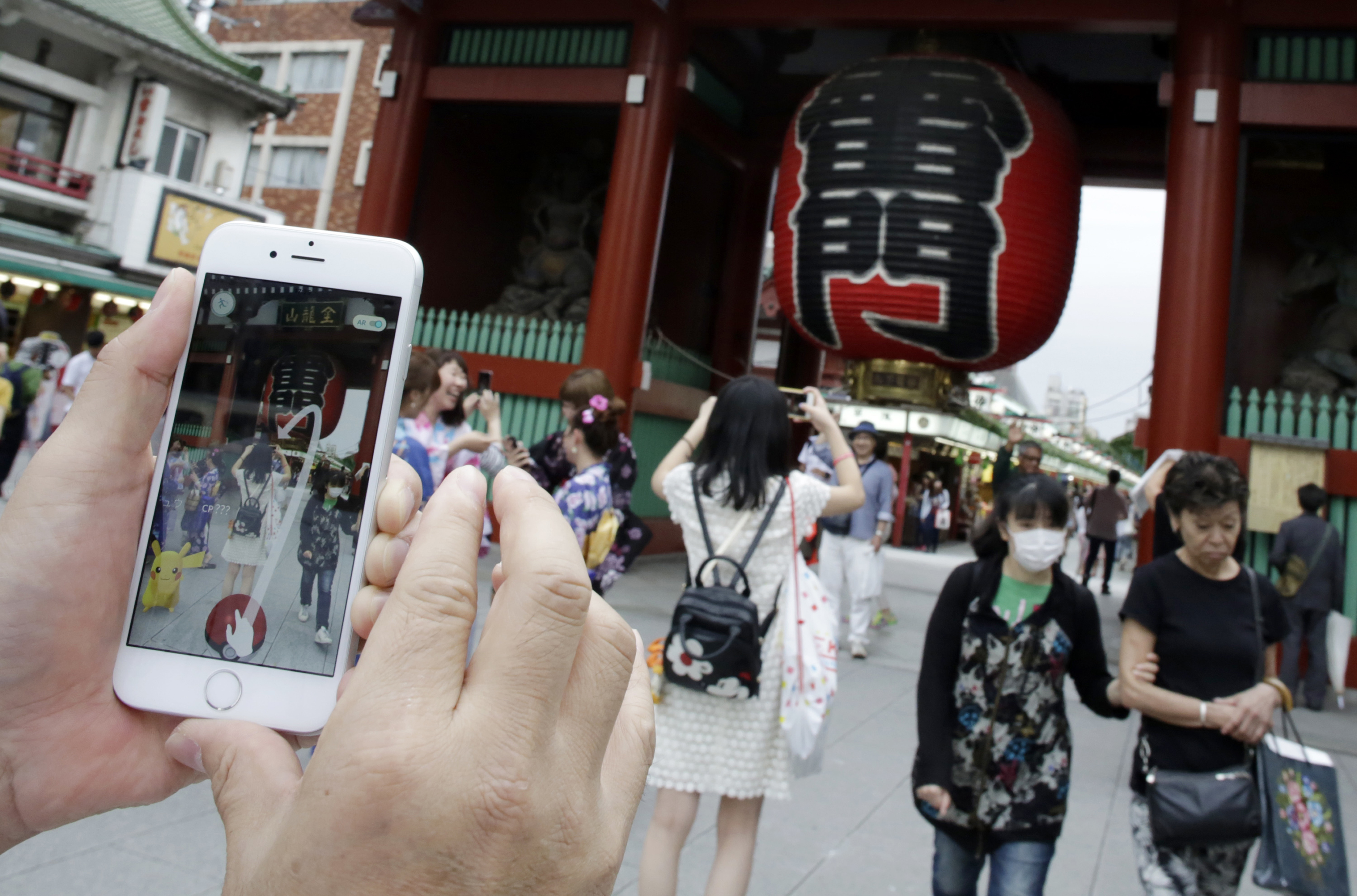Sex predators use Pokemon Go to lure prospective victims

A man tries to catch a Pikachu, a Pokemon character, while he plays “Pokemon Go” in front of Kaminarimon, or Thunder Gate, at the Sensoji temple in Tokyo’s Asakusa shopping and tourist district in this July 22, 2016, photo. Businesses, as well as sex offenders, are using the game to lead people to places they want them to go. (AP Photo/Eugene Hoshiko)
NEW YORK, United States — It’s the smartphone game electrifying the world but New York took steps Monday to ban sex offenders from using the app to potentially prey on child victims.
The game, developed by US-based software company Niantic, a spinoff of Google, has been downloaded more than 75 million times across the United States and has gone viral across the world.
READ: Israeli army identifies a new threat: Pokemon Go
But Governor Andrew Cuomo ordered New York’s department of corrections to ban nearly 3,000 registered offenders on parole from downloading, accessing or taking part in Pokemon Go as well as other Internet-enabled games.
“Protecting New York’s children is priority number one and, as technology evolves, we must ensure these advances don’t become new avenues for dangerous predators to prey on new victims,” Cuomo said in a statement.
The governor wrote Monday to software developer Niantic, Inc. asking them to bar sexual predators from playing Pokemon.
READ: Pokemon fans detained after wandering over US-Canada border
“The state has taken action to prohibit sex offenders from using this game, but we need your assistance to make certain that sex offenders will not continue to use Pokemon Go by technologically barring their use,” he said in the letter.
A report from two New York state senators showed that children playing Pokemon have been unwittingly lured into proximity of sex offenders.
Their investigation caught 57 Pokemon characters directly outside 100 homes of registered sex offenders on probation or parole whose crimes involved child abuse or possession of child pornography in the city of New York.
READ: Indonesian businesses use ‘Pokémon Go’ to lure players
There are nearly 3,000 sex offenders currently on parole in New York, the fourth most populous state in the United States.
Since 2008, New York sex offenders have been required to register all email accounts and Internet identities with the state criminal justice services.
The list is given to more than two dozen social networking companies on a weekly basis in order to purge offenders from their membership.